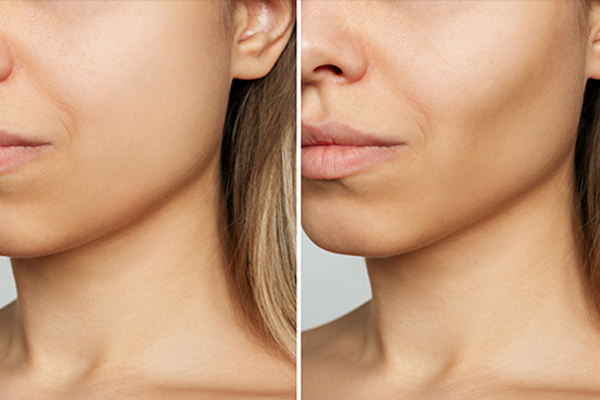Buccal fat pad reduction
Buccal fat pad reduction is a cosmetic surgical procedure aimed at contouring and slimming the cheeks by reducing the buccal fat pads. This procedure is popular among those seeking a more sculpted, defined, and youthful facial appearance.
Benefits of Buccal Fat Pad Reduction
- Contours and defines the cheekbones.
- Reduces the appearance of a "round" or full face.
- Enhances facial symmetry and structure.
- Provides a more sculpted and youthful look.
Procedure Overview
1. Consultation
- Discuss aesthetic goals and determine the suitability of buccal fat pad reduction.
- Facial analysis to assess the amount of fat to be removed.
2. Anesthesia
- Local anesthesia with sedation is typically used.
3. Surgical Technique
-
Incision:
- Small intraoral incisions are made inside the mouth (inside the cheek) to access the buccal fat pads.
-
Fat Removal:
- Excess fat is carefully removed, allowing for a more defined cheek structure.
-
Closure:
- Incisions are closed using dissolvable stitches.
4. Duration
- The procedure usually takes 1-2 hours.
Recovery Process
-
Post-Procedure:
- Swelling, bruising, and mild discomfort for the first few days.
- Ice packs can help manage swelling.
-
Diet and Activity:
- Soft foods and a liquid diet are recommended for the first few days.
- Avoid strenuous activities for at least one week.
-
Healing Timeline:
- Swelling subsides within 1-2 weeks.
- Full results become evident after 4-6 weeks as the cheeks settle.
Ideal Candidates
- Individuals with full or chubby cheeks desiring a slimmer facial appearance.
- Healthy individuals with realistic expectations for contouring and sculpting.
- Those without underlying medical conditions that may affect healing.
Risks and Complications
- Scarring: Minimal, hidden inside the mouth.
- Infection: Rare, managed with proper post-operative care.
- Numbness: Temporary, with full sensation returning within a few weeks.
- Asymmetry: May require minor revision surgery.
Cost Factors
- Surgeon’s expertise and location.
- Complexity of the procedure.
- Additional costs for anesthesia and post-operative care.



